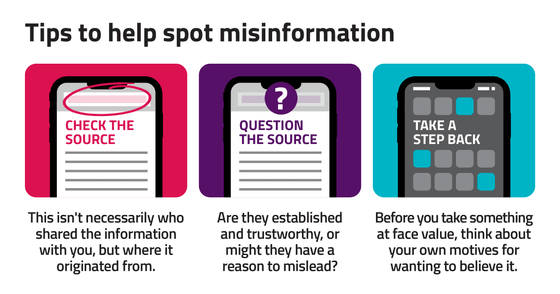Survey results show that one-third of Internet users are 'indifferent to false information' and that there are a certain number of people who believe in all Internet information.

On March 29, 2022, the Telecommunications Agency (
The genuine article? One in three internet users fail to question misinformation --Ofcom
https://www.ofcom.org.uk/news-centre/2022/one-in-three-internet-users-fail-to-question-misinformation
According to Ofcom, YouTube uploads 500 hours of content per minute, TikTok watches 5,000 videos per minute, and Instagram shares 695,000 stories per minute, making it more modern than ever. 'Judgment to distinguish facts from fiction' is becoming an important society.
However, according to a survey of British people using the Internet by Ofcom, 30% of 14.5 million adult net users 'consider whether or not they are confident about the truth of online information. I haven't even done it. ' In addition, it turns out that 1 in 20 Internet users, or 6%, believe everything on the net.

Not only is the awareness of false information low, but the ability to detect false information is also jeopardized. In a survey by Ofcom that lets participants evaluate their credibility by showing them social media posts, 69% of adults said they were 'confident to spot false information,' but they could spot genuine posts. It was only 22%. A similar trend was seen in children aged 12 to 17 years, with 74% saying they were 'confident' while only 11% answered correctly.
Ofcom CEO Dame Melanie Dawes said of the findings: 'In today's volatile and uncertain world, everyone has the confidence to distinguish between fact and fiction online and has the tools to tell. But many adults and children seem to have a hard time figuring out what's fake, so we're tackling this problem and misinformation that is harmful to IT companies as well. We are calling for prioritization of the eradication of, and we will provide hints on what to consider when surfing the net. '
There are three tips that Ofcom has published as points to identify misinformation.
◆ Check the source
This is not about who shared the information, but what source the information was originally sent by the person or institution.
◆ Doubt the source
Once you've identified the source, then consider whether the source is reliable or may have a misunderstanding motive.
◆ Take a step back
Before you believe in something, you need to look back on whether you have the heart to believe in it.

Related Posts:
in Web Service, Posted by log1l_ks







